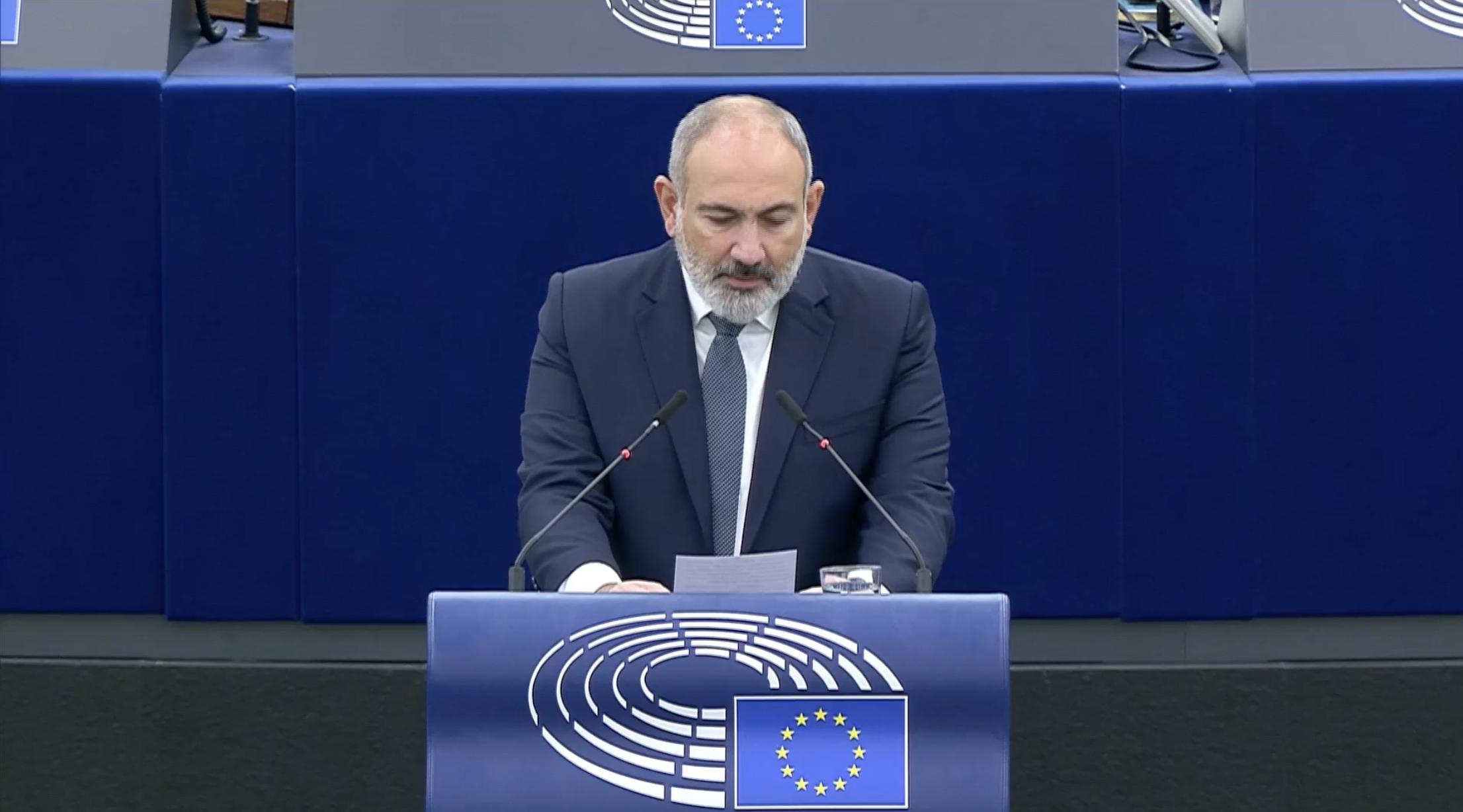
Armenian Prime Minister Nikol Pashinyan Addresses the European Parliament
Armenian Prime Minister Nikol Pashinyan addresses the European Parliament.
Here’s an official translation of Pashinyan’s remarks.
Honorable President of the European Parliament, honorable members of parliament, dear attendees,
It is a great honor for me to speak from this high chair of the European Parliament and I thank you for such an opportunity. Our government and the people of the Republic of Armenia see the European Parliament as a body that spoke and speaks the language of truth during all the trials that befell the Republic of Armenia and the Armenians of Nagorno-Karabakh. I also thank you all for this, because the truth is power and every time we have had a share of that power formed by you.
Now it is common to say that democratic Armenia is going through difficult trials and this is the truth. But it is equally true that Armenia's democracy is going through difficult trials. And yet the greatest truth is that Democracy in Armenia is going through severe trials, not only the democracy of Armenia, but democracy in general, because a series of events taking place in the Republic of Armenia and in different places of the world raise the following question: and is democracy able to provide security, peace, unity, prosperity and happiness?
But I didn't come here to ask, I came here to answer, and my answer is an unequivocal "Yes".
Many say that Armenia is suffering today because of democracy. But I must emphasize my belief that the Republic of Armenia would simply have been paralyzed from the largely inevitable trials that have befallen it in recent years, would have lost its independence and sovereignty, if it were not democratic.
This is evidenced by the events of 2020-2021. After the signing of the tripartite declaration of ceasefire at the end of the 44-day war, when the state institutions of Armenia became the target of attacks by extremist groups, when the society was divided and was in rage, the democratically formed institutions remained firm in their positions of statehood protection, at the same time not violating any principle of democracy. Freedom of speech and assembly was not restricted in Armenia, cases of disproportionate use of force were not recorded, and the rule of law was not belittled.
And despite the fact that we continued to have a majority in the parliament, in order to overcome the socio-psychological crisis caused by the severe consequences of the war, the ruling force, the "Civil Contract" party, made a decision to go to snap parliamentary elections, and for this purpose I resigned from the position of prime minister, and the government and the parliament were dissolved according to the established procedure.
On May 12, 2021, two days after the dissolution of the Parliament came into force de jure, Azerbaijani troops violated the border with Armenia, invading up to 4 kilometers deep into the sovereign territory of Armenia in a 100-kilometer section of the border line.
In this situation, the Collective Security Treaty Organization, which is considered the security system of Armenia, and the countries having bilateral security obligations to Armenia did not help us at all.
The purpose of this provocation, which took place before the parliamentary elections, was to thwart the upcoming parliamentary elections and paralyze the statehood of Armenia, or at least to form a puppet government. But in this environment, the people of Armenia were able to stand firm in defense of Armenia's independence, sovereignty and democracy, and parliamentary elections were held, which were internationally recognized as free, democratic, transparent and competitive.
For the first time in the history of the Republic of Armenia, the elections became a way to overcome the internal crisis and not the other way around. This is the key difference between Armenia after and before the people's, nonviolent, velvet revolution of 2018. If before the revolution, elections usually became the cause of internal crises due to the lack of public confidence in their results, after the revolution, elections prevent or overcome the crisis, because citizens have not only a theoretical but also a practical opportunity to make decisions and implement those decisions.
Ever since the people's, non-violent, velvet revolution of 2018, no election at any level has been rigged in Armenia, and if 6 years ago people would have laughed at the assertions about their right to form a government through elections, now they will not understand what falsification or rigging of the election results means. This is what has changed in the Republic of Armenia in the last 5 years.
But democracy in Armenia has continued and continues to receive strong blows, which operate with an almost exactly repeated formula. external aggression, then the inaction of Armenia's allies in the field of security, then attempts to use the war or humanitarian situation or the external security threat to subvert Armenia's democracy and sovereignty, which is expressed by inciting internal instability with hybrid technologies directed by external forces.
Read MORE
 Videos
Videos Photos
Photos
Write a comment